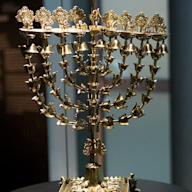Search results
Kwanzaa celebrates what its founder called the seven principles of Kwanzaa, or Nguzo Saba (originally Nguzu Saba – the seven principles of African Heritage). They were developed in 1965, a year before Kwanzaa itself.
May 27, 2024 · Kwanzaa, annual holiday affirming African family and social values that is celebrated primarily in the United States from December 26 to January 1. Both the name and the celebration were devised in 1966 by Maulana Karenga, a professor of Africana studies and an important figure in Afrocentrism.
Oct 14, 2009 · Kwanzaa is a week-long secular holiday which culminates on New Year's Day. Founded in 1966, Kwanzaa combines aspects of several African harvest celebrations.
Nov 29, 2023 · Kwanzaa is a seven-day, non-religious celebration of family, culture, and community. Each day honors a particular African-derived principle and the final day culminates in a feast (called Karamu) on New Year’s Day. If you’ve never celebrated Kwanzaa before, there’s no time like the present to start.
Dec 20, 2023 · The 7 principles of Kwanzaa—and why they matter. The weeklong holiday, which is celebrated every year from December 26 to January 1, is rooted in values that anyone can adopt and practice year...
Dec 22, 2020 · Though Kwanzaa became a mainstream holiday in the 1980s, its traditions have faded in recent years. Here’s how Kwanzaa came to be, how it’s celebrated, and how it is evolving today.
Given the profound significance Kwanzaa has for African Americans and indeed, the world African community, it is imperative that an authoritative source and site be made available to give an accurate and expansive account of its origins, concepts, values, symbols and practice.
Created in 1966 by Maulana Ron Karenga, Kwanzaa is an African American and Pan-African holiday that celebrates history, values, family, community and culture. The ideas and concepts of Kwanzaa are expressed in the Swahili language, one of the most widely spoken languages in Africa.
Kwanzaa is a time of learning, family and celebration. During the week of Kwanzaa, families and communities come together to share a feast, to honor the ancestors, affirm the bonds between them, and to celebrate African and African American culture.
Kwanzaa was created for three reasons. First, Kwanzaa came into being during the Black Freedom Movement of the 1960’s as a way to reaffirm and restore our connection to the best African cultural traditions that we were disconnected from through the Holocaust of Enslavement and subsequent periods of oppression.


